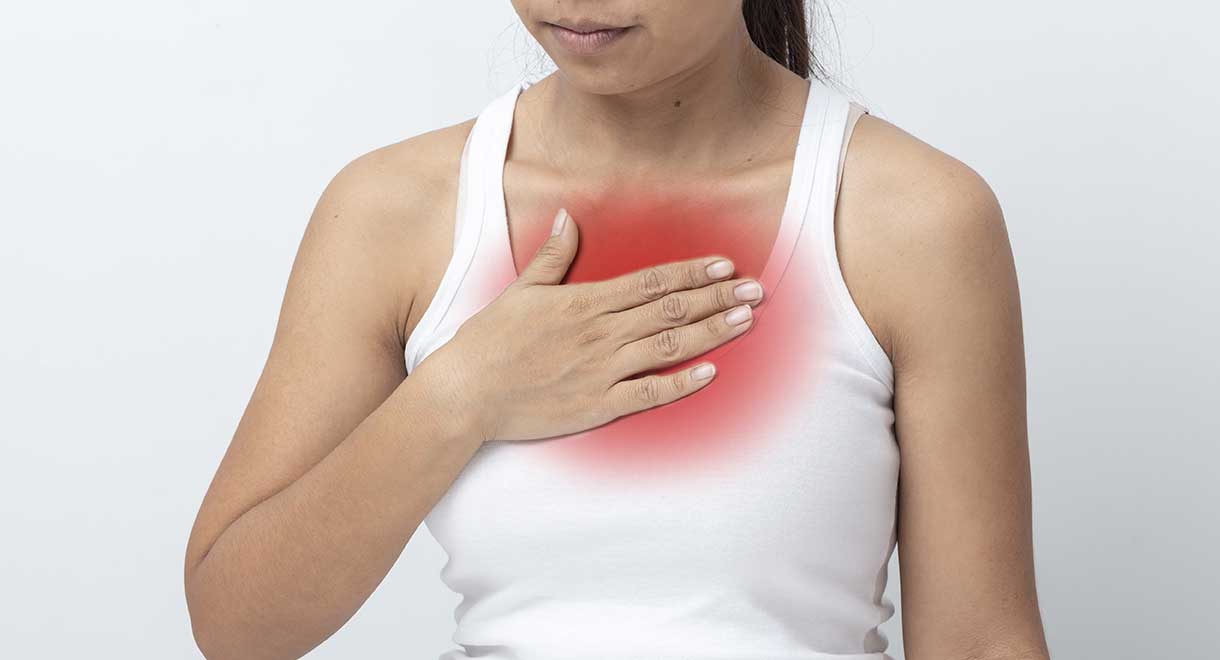Reflux
Reflux is a common problem in those who carry excess weight. It is referred to as reflux esophagitis, and is also known as ‘heartburn’, although it has nothing to do with the heart.
What causes reflux?
It is caused by the acid contents of the stomach regurgitating or flowing backwards into the esophagus. The lining of the esophagus is not designed to handle these high acid conditions, which leads to inflammation and in severe cases scarring of the esophagus. This is called esophagitis.
There is a circular muscle around the lower esophagus, which divides it from the stomach, and this normally remains contracted to prevent back flow of stomach acid. During swallowing this muscle normally relaxes, allowing food to pass from the esophagus into the stomach after which it should remain contracted. If this circular muscle becomes weakened or too relaxed, reflux can occur after meals, and this produces a burning pain in the upper abdomen or mid chest. Reflux can occur right up to the throat when a bitter burning sensation in the throat will be experienced.
In some people with reflux there is also a hernia of the upper part of the stomach through the diaphragm into the lower chest. This is called a hiatus hernia and is more common in those who are overweight or aged.
General treatment
Reflux can last anywhere from several minutes to hours. In severe cases of reflux esophagitis, medications to block stomach acid production should be taken if natural therapies fail. These are very effective and generally well tolerated. These may include; cimetidine, famotidine, nizatidine, rantidine and omeprazole. These medications should not be relied upon long term because they can have undesirable side effects and increase the risk of osteoporosis.
In acute attacks of heartburn, it may be necessary to use an antacid preparation for quick relief.
To reduce reflux, use these techniques:
- Lose weight with exercise and correct diet if overweight.
- Meals should be small and frequent as large meals increase pressure inside the stomach.
- Do not drink with meals.
- Do not eat food during the 3 hours before retiring to bed and drink alkaline beverages during this time such as herbal teas, aloe vera juice and water.
- Use soothing teas such as chamomile.
- Elevate the top of your bed by 6 inches.
- Avoid coffee, alcohol, cigarettes, fatty foods, fried foods, preserved foods and vinegar. Some people may need to also avoid spicy foods.
- The majority of people with reflux have a food intolerance which is behind their symptoms. Common culprits include cow’s milk and gluten (found in wheat, rye, oats and barley). A dairy free and grain free diet helps the majority of reflux sufferers.
- You may have Small Intestinal Bacterial Overgrowth (SIBO), which can increase pressure inside the stomach.
Recommended books
- “The Liver Cleansing Diet” – for the vital healthy eating principles.
- “Raw Juices Can Save Your Life” – contains juicing recipes to help with this condition.
- “The Ultimate Detox” – all of the recipes in this book are free of gluten and dairy products, therefore, helpful for people with a digestive complaint such as reflux.
- “Healing Autoimmune Disease” – this book contains detailed information about overcoming SIBO.
Recommended supplements for reflux
- Livatone Plus Powder or Capsules
Take 2 capsules before food twice daily or 1 teaspoon twice daily with water or raw juice before food. Livatone provides excellent relief of digestive disorders. - Magnesium
Take 2 tablets twice daily before food. Magnesium will help the esophageal muscle. - Vitamin E
Take 1 capsule daily before food to help reduce scarring of the esophagus. - Ultimate Gut Health Powder
Take 1 level scoop daily. Ultimate Gut Health keeps your intestines as healthy as possible. Designed to soothe, heal and repair the gut lining, you will find your intestines love this powder.
The above statements have not been evaluated by the FDA and are not intended to diagnose, treat or cure any disease.


Thankyou for your information it was very helpful